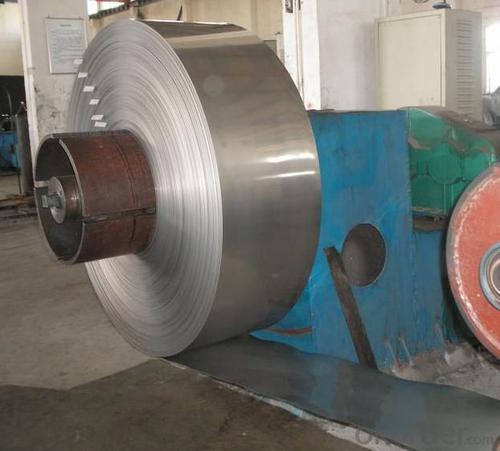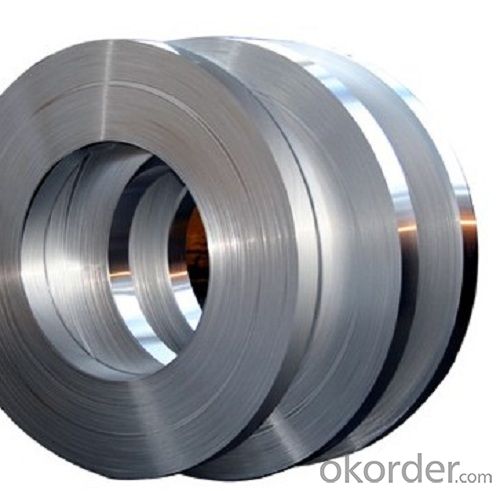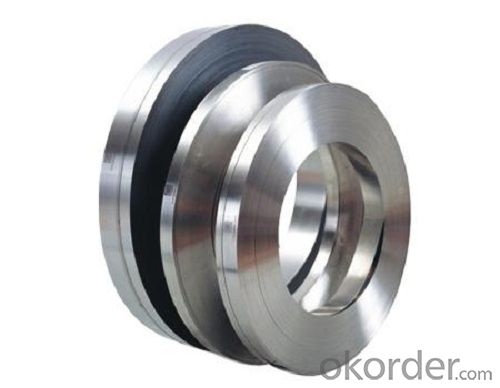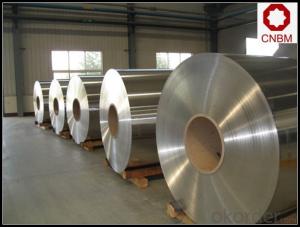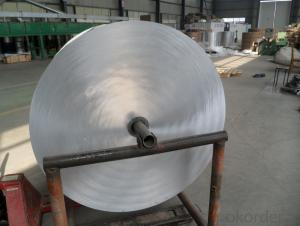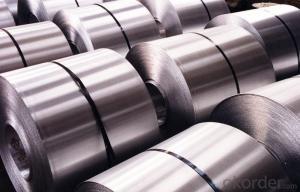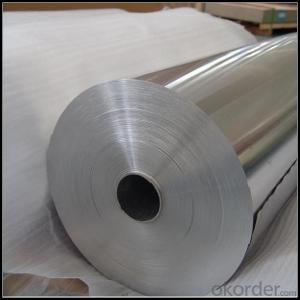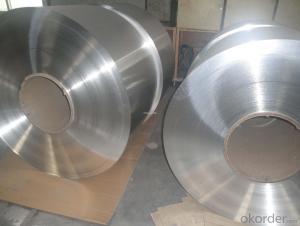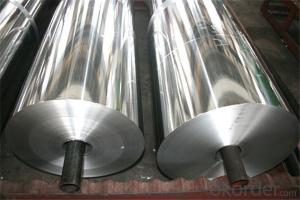Anodized Aluminum Coil for Aluminium and Plastic Pipe Strips
- Loading Port:
- Shanghai
- Payment Terms:
- TT OR LC
- Min Order Qty:
- 2.5
- Supply Capability:
- 5000 m.t./month
OKorder Service Pledge
OKorder Financial Service
You Might Also Like
Specification
Aluminium Strips for Aluminium and Plastic Pipe
l Product Specification
1. Commodity: Aluminium Strips for Aluminium and Plastic Pipe
2. Alloy No.: 1100, 1050, 1060, 1070, 1235, 1200, 1145, 3003, 3003-2, 491, 5052, 5083, 6061, 8011
3. Size:
Thickness: 0.21-5.0mm(Tolerance:+/-0.02mm)
Width:20-1600mm(Tolerance:+/-1mm)
Length:230-5000mm(Tolerance:+/-1mm)
4. Application:
1) air plane, refrigerators ,audio equipment
2) building material: ceilings, walls
3) telephones, digital cameras
4) plastic composite board, aluminum and plastic pipe
5. Payment:L/C at sight or T/T
6. Delivery time:15 days after received your pre-payment.
7. Package:
In standard sea worthy wooden pallet and covering with brown paper and PVC inside.
8. Month Capacity: 5000 MT/Month
9.Certificate:SGS, ISO9001:2000; ISO1400:2004
l Packaging & Delivery
Packaging detail: Seaworthy Export Standard Wooden Pallet and with damp proof film as first layer, Kraft paper as second layer, Cardboard card as third layer Criss-cross steel strip to fix outside
Delivery detail: About 15 days
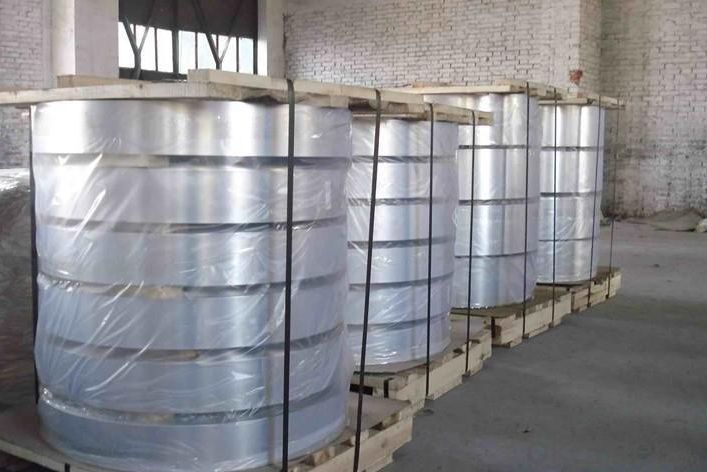
l Company Profile
CNBM International Corporation, China National Building Materials (Group) Corporation, is one of the largest companies in China building material & equipment industry, with 42,800 employees and sales in 2005 of US Dollar 4.395 billion. In 2006, China National Building Material Company Limited was listed on Hong Kong Stock Market with the stock code as 3323. |
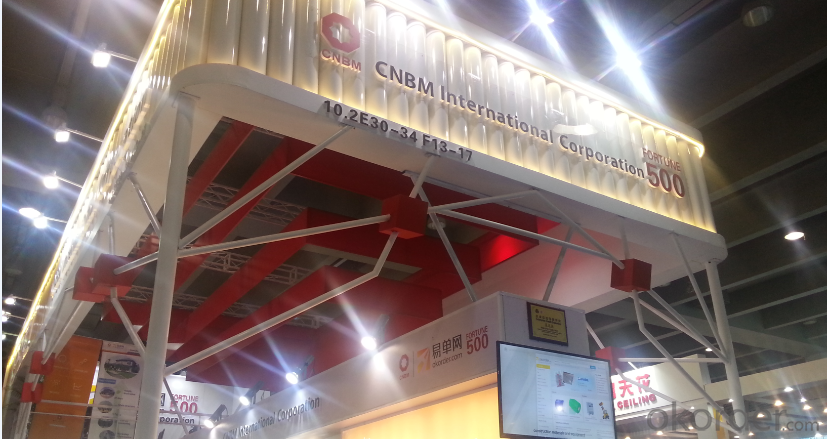
l CNBM World Wide
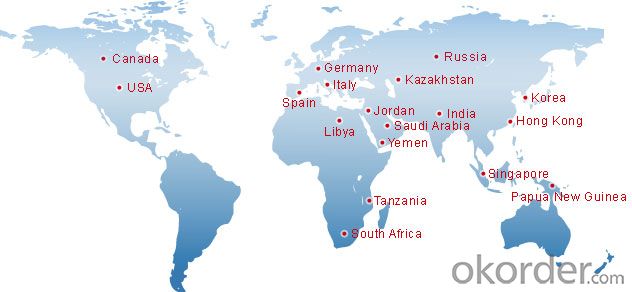
l Products Images
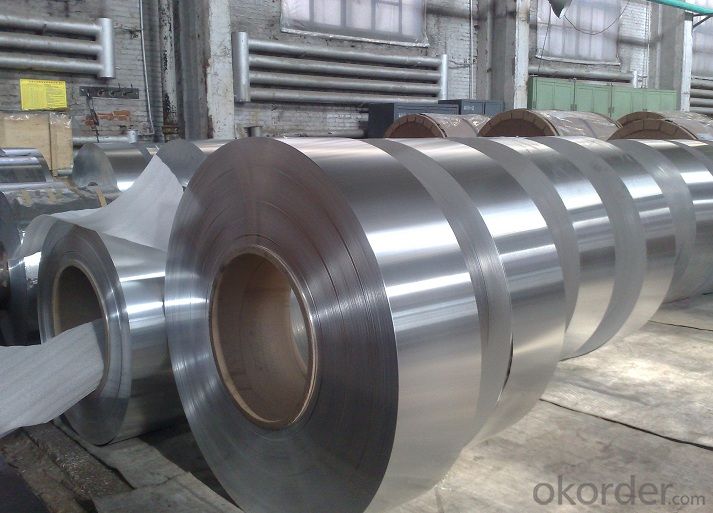
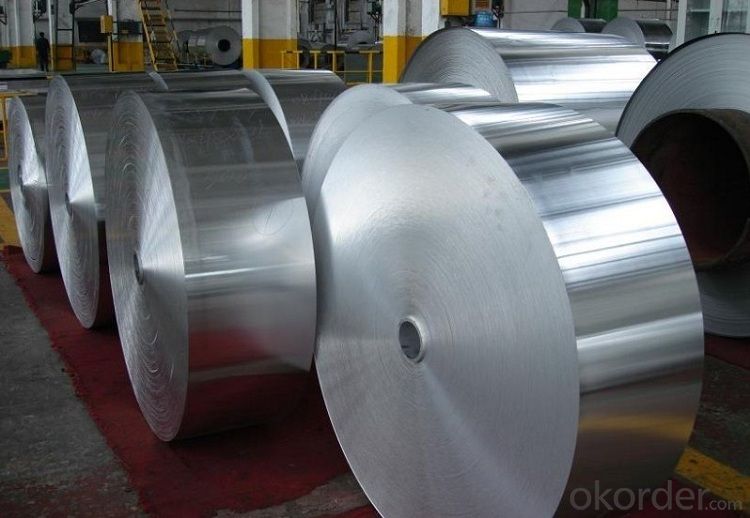
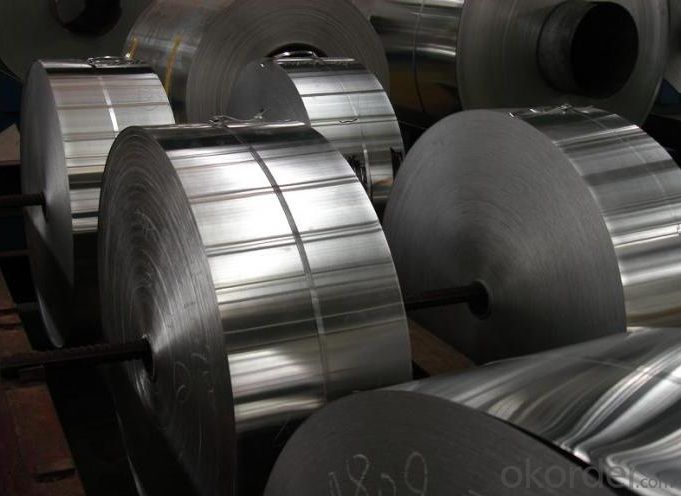
l Certificates
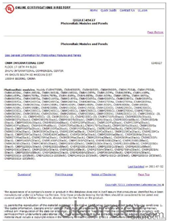
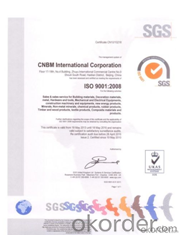
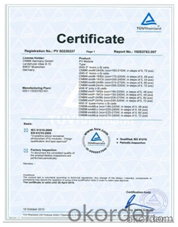
l FAQ
Q: Do you provide free samples?
A: Yes, free samples will be sent to you on freight at destination.
Q: Can I get your latest products catalogue?
A: Yes, it will be sent to you in no time.
Q: What is the MOQ?
A: 2.5 tons
Q: What are your payment terms?
A: We accept L/C, T/T
- Q: Is it possible to construct a bird feeder using an aluminum coil?
- <p>Yes, you can use an aluminum coil to make a bird feeder. Aluminum is lightweight, durable, and resistant to rust, making it a suitable material for outdoor use. To create a bird feeder, you can form the coil into a hanger or support structure, then attach a feeding platform or container where birds can access the food. Ensure the structure is stable and safe for birds to perch and feed. Remember to use appropriate tools and safety measures when working with aluminum, and consider painting or coating the coil to enhance its appearance and protect it from the elements.</p>
- Q: Where can I purchase used aluminum coil over the internet?
- <p>Yes, you can buy used aluminum coil online. There are various online platforms and marketplaces where you can find used aluminum coils for sale. Websites like eBay, Alibaba, and specialized metal trading platforms often list used aluminum coils. Additionally, you can check with local recycling centers or metal suppliers who may have used aluminum coils available. Always ensure to verify the condition, specifications, and authenticity of the product before making a purchase.</p>
- Q: What are the potential hazards associated with handling aluminum coils?
- The potential hazards associated with handling aluminum coils include the risk of physical injury due to their weight and sharp edges, the possibility of chemical exposure from coatings or lubricants used on the coils, and the potential for fire or explosion if the coils come into contact with certain substances. It is also important to be cautious of the risks associated with lifting heavy objects, such as strains or sprains.
- Q: Can aluminum coils be used in automotive applications?
- Yes, aluminum coils can be used in automotive applications. Aluminum is a lightweight and corrosion-resistant material, making it a suitable choice for various automotive components, including coils. Its high thermal conductivity also allows for efficient heat transfer, making it beneficial for applications such as radiators and air conditioning systems.
- Q: How are aluminum coils coated for corrosion resistance?
- Aluminum coils are coated for corrosion resistance through a process called coil coating. Coil coating involves the application of a protective coating onto the aluminum surface to prevent it from corrosion caused by exposure to the environment. The first step in the process is the cleaning and pre-treatment of the aluminum coil. This is done to ensure that the surface is free from any contaminants, such as grease, dirt, or oxidation. The coil is typically cleaned using chemical cleaning agents and then rinsed to remove any residue. After cleaning, the coil is coated with a primer. The primer acts as a bonding agent between the aluminum surface and the subsequent coating layers. It enhances the adhesion of the topcoat and provides an additional layer of protection against corrosion. Once the primer is applied, the coil is then coated with a topcoat. The topcoat is usually a polymer-based paint that provides the desired color and appearance to the aluminum surface. It also acts as a barrier against moisture, UV radiation, and other environmental factors that can cause corrosion. The coating process can be done using various techniques, such as roll coating, spray coating, or coil painting. Each technique has its advantages and is chosen based on factors like cost, production speed, and the desired coating properties. In addition to the primer and topcoat, some aluminum coils may also receive a clear protective coating. This additional layer enhances the durability and longevity of the coated surface, providing an extra level of protection against corrosion. Overall, the coating of aluminum coils for corrosion resistance is a crucial step in ensuring the longevity and performance of the products made from these coils. The specific coating process and materials used may vary depending on the application and desired performance requirements.
- Q: Can aluminum coils be customized to specific thicknesses and widths?
- Yes, aluminum coils can be customized to specific thicknesses and widths.
- Q: What are the applications of aluminum coils?
- Aluminum coils have a wide range of applications in various industries due to their unique properties and versatility. One of the major applications of aluminum coils is in the construction industry. These coils are used for roofing, siding, and insulation purposes as they are lightweight, durable, and resistant to corrosion. Aluminum coils are also commonly used for manufacturing gutters, downspouts, and ventilation systems in buildings. In the automotive industry, aluminum coils are used for manufacturing various parts such as heat shields, radiators, and condensers. The lightweight nature of aluminum makes it an ideal choice for improving fuel efficiency and reducing the overall weight of vehicles. Additionally, aluminum coils are used in the production of heat exchangers and air conditioning systems for automobiles. Aluminum coils are extensively used in the packaging industry as well. They are commonly used for manufacturing beverage cans, food containers, and packaging materials. Aluminum's high ductility and excellent formability make it a preferred choice for producing these types of products. Moreover, aluminum coils provide a barrier against moisture, light, and oxygen, ensuring the preservation and protection of the packaged contents. Another important application of aluminum coils is in the electrical and electronics industry. These coils are used in the production of transformers, power distribution systems, and electrical conductors. Aluminum's high electrical conductivity and low density make it advantageous for these applications. Furthermore, aluminum coils find applications in the manufacturing of appliances, such as refrigerators, air conditioners, and washing machines. They are also used in the production of furniture, decorative items, and various consumer goods. Overall, the applications of aluminum coils are vast and diverse, ranging from construction and automotive industries to packaging, electrical, and consumer goods. The unique combination of lightweight, durability, corrosion resistance, and excellent formability make aluminum coils an indispensable material in numerous sectors.
- Q: This question asks about the distinctions among various grades of aluminum coils, likely referring to their properties and uses.
- <p>Aluminum coils are differentiated by grades based on their alloy composition, thickness, and specific applications. Common grades include 1000 series (99% pure aluminum, soft and malleable), 3000 series (aluminum-manganese alloys, good for cooking utensils), 5000 series (aluminum-magnesium alloys, used in marine applications), and 6000 series (aluminum-magnesium-silicate alloys, known for strength and used in construction). Each grade has distinct properties such as strength, formability, and corrosion resistance, which determine their suitability for different industries and applications.</p>
- Q: What are the different types of aluminum coils?
- There are several different types of aluminum coils available, each with its own unique properties and uses. Some common types include: 1. Plain Aluminum Coils: These coils are typically made from pure aluminum and are used in a variety of applications, including packaging, construction, and automotive industries. 2. Embossed Aluminum Coils: These coils have a textured or patterned surface, which adds aesthetic appeal and can enhance the grip or provide anti-slip properties. They are commonly used in architectural designs, signage, and decorative applications. 3. Color Coated Aluminum Coils: These coils have a protective coating applied to the surface, providing enhanced durability, weather resistance, and aesthetic customization. They are often used in building facades, roofing, and cladding systems. 4. Anodized Aluminum Coils: Anodization is an electrochemical process that forms a layer of oxide on the surface of the aluminum, making it more resistant to corrosion and wear. Anodized aluminum coils are commonly used in architectural applications, electronics, and automotive parts. 5. Pre-painted Aluminum Coils: These coils have a layer of paint applied to the surface, providing protection against weathering and adding color aesthetics. They are frequently used in the construction industry for roofing, siding, and insulation purposes. 6. Stucco Embossed Aluminum Coils: These coils have a raised pattern resembling stucco, which adds texture and enhances the strength of the aluminum. They are commonly used in refrigerators, air conditioners, and other appliances. 7. Clad Aluminum Coils: Clad aluminum coils consist of two or more layers of aluminum bonded together for enhanced strength, durability, or specific properties. They are used in various industries, such as aerospace, defense, and transportation. Overall, the choice of aluminum coil type depends on the specific application requirements, such as desired appearance, corrosion resistance, durability, and mechanical properties.
- Q: What are the fire-resistant properties of aluminum coils?
- Due to its inherent characteristics as a metal, aluminum exhibits excellent fire-resistant qualities when formed into coils. With a melting point of 660 degrees Celsius (1220 degrees Fahrenheit), aluminum can endure high temperatures without melting, thereby making aluminum coils resistant to fire hazards. Furthermore, unlike certain other metals, aluminum does not produce flammable gases when exposed to fire. This non-combustible attribute prevents the fire from spreading and minimizes the potential for fire-related damages. Additionally, due to its low thermal conductivity, aluminum does not efficiently conduct heat. Consequently, aluminum coils do not facilitate the transfer of heat from one area to another, which aids in containing and controlling the fire's spread. Moreover, aluminum coils frequently undergo a protective coating process to enhance their fire resistance. These coatings, composed of materials like polyvinylidene fluoride (PVDF) or polyester, create an additional barrier against fire and heat. Engineered to withstand extreme temperatures while maintaining their integrity, these coatings further bolster the fire-resistant qualities of aluminum coils. In summary, aluminum coils possess exceptional fire-resistant characteristics owing to their high melting point, non-combustible nature, low thermal conductivity, and protective coatings. These attributes make aluminum coils a dependable choice for applications where fire safety is paramount, such as in building construction, electrical wiring, and transportation industries.
Send your message to us
Anodized Aluminum Coil for Aluminium and Plastic Pipe Strips
- Loading Port:
- Shanghai
- Payment Terms:
- TT OR LC
- Min Order Qty:
- 2.5
- Supply Capability:
- 5000 m.t./month
OKorder Service Pledge
OKorder Financial Service
Similar products
Hot products
Hot Searches
Related keywords



